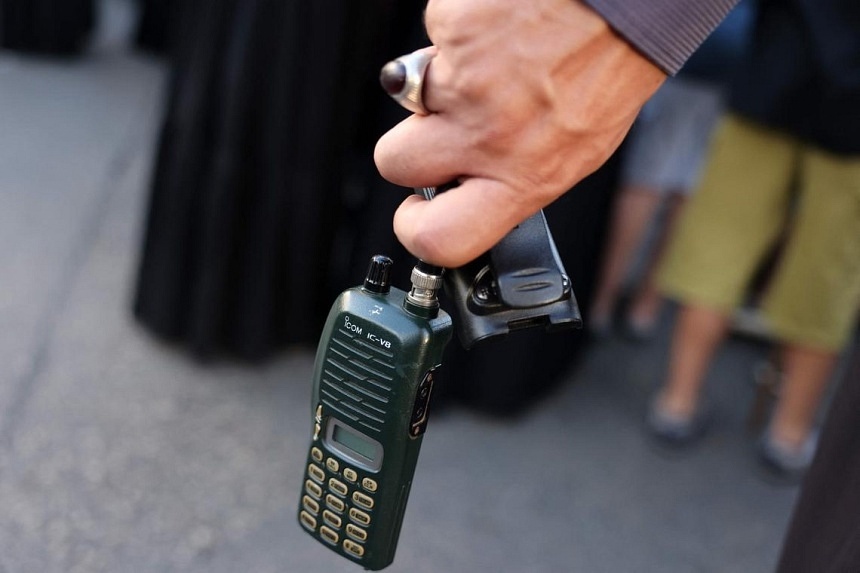Hand-held radios used by Lebanese armed group Hezbollah detonated on Wednesday across Lebanon’s south, in Beirut suburbs and the Bekaa Valley, further stoking tensions with Israel a day after similar explosions by the group’s pagers.
Lebanon’s health ministry said 14 people had been killed and 450 injured on Wednesday, while the death toll from Tuesday’s explosions rose to 12, including two children, with nearly 3,000 injured.
At least one of Wednesday’s blasts took place near a funeral organised by Iran-backed Hezbollah for those killed the previous day when thousands of pagers used by the group exploded across the country and wounded many of its fighters.
Lebanon’s Red Cross said on X that it was responding with 30 ambulance teams to multiple explosions in different areas, including the south of Lebanon and the Bekaa Valley.
- UK announces £1.9m investment to boost W/Africa’s economic growth
- NIGERIA DAILY: Will Nigeria’s Flood Preparedness Improve As Lagdo Dam Gives Early Warning
Hezbollah, which was thrown briefly into disarray by the pager attacks, said on Wednesday it had attacked Israeli artillery positions with rockets, the first strike at its arch-foe since the blasts, which raised the prospect of a wider Middle East war.
The Israeli military said warning sirens sounded a number of times in northern Israel but there were no reports of any damage or casualties.
Israeli Defence Minister Yoav Gallant said on Wednesday the centre of gravity of the war was moving north, where Lebanon borders Israel, with more troops and resources being transferred to the area.
“We are opening a new phase in the war. It requires courage, determination and perseverance from us,” he said, in remarks at an air force base.
Images of the exploded walkie-talkies examined by Reuters showed an inside panel labelled “ICOM” and “made in Japan.”
According to its website, ICOM is a Japan-based radio communications and telephone company.
The company has said that production of several models of the ICOM hand-held radio have been discontinued, including the IC-V82, which appeared to closely match those in images from Lebanon on Wednesday and which was phased out in 2014.
There was no immediate reply from ICOM to a request for comment on Wednesday.
The hand-held radios were purchased by Hezbollah five months ago, around the same time as the pagers, a security source said.
Israel’s spy agency Mossad, which has a long history of sophisticated operations on foreign soil, planted explosives inside pagers imported by Hezbollah months before Tuesday’s detonations, a senior Lebanese security source and another source told Reuters.
Israel’s military has declined to comment on the blasts.
Tuesday’s attack wounded many of the militant group’s fighters and Iran’s envoy to Beirut.
Frontline workers described hellish scenes: victims of thousands of small explosions linked to pagers used by Hezbollah rushed into hospitals, some with organs protruding, others with missing eyes or fingers.
The U.N. High Commissioner for Human Rights Volker Turk called for an independent investigation into the events surrounding exploding pagers.
The United Nations Security Council will meet on Friday over the pager blasts after a request from Algeria on behalf of Arab states, said Slovenia’s U.N. Ambassador Samuel Zbogar, president of the 15-member council for September.
Taiwanese pager maker Gold Apollo denied that it had produced the pagers. It said the devices were made under licence by a company called BAC, based in Hungary’s capital Budapest.
Hungary on Wednesday said the devices had never been in the country and that authorities had established that BAC was a trading-intermediary company with no manufacturing or operations in Hungary.
Hezbollah has vowed to retaliate against Israel. The two sides have been engaged in cross-border warfare since the Gaza conflict erupted last October, fuelling fears of a wider Middle East war that could drag in the United States and Iran.
Jordan’s Foreign Minister Ayman Safadi accused Israel of pushing the Middle East to the brink of a regional war by orchestrating a dangerous escalation on many fronts.
Hezbollah had turned to pagers and other low-tech communications devices in an attempt to evade Israeli surveillance of mobile phones. (Reuters)

 Join Daily Trust WhatsApp Community For Quick Access To News and Happenings Around You.
Join Daily Trust WhatsApp Community For Quick Access To News and Happenings Around You.


